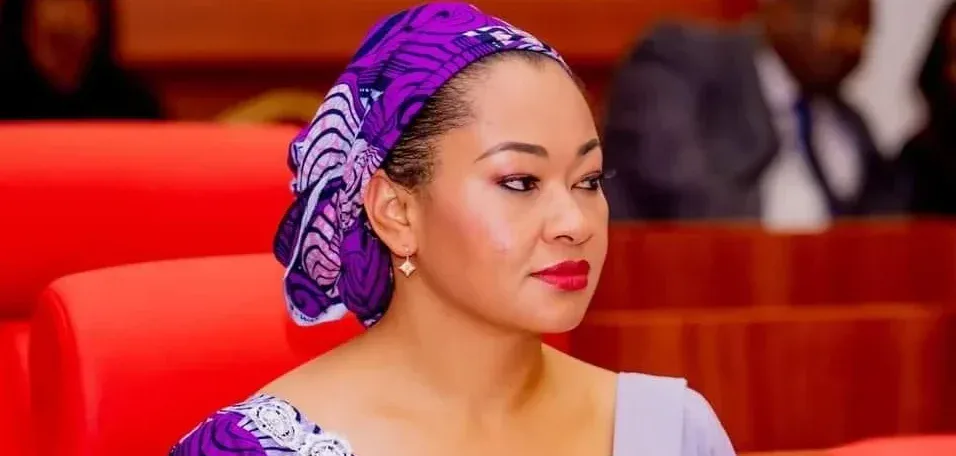Cybercrime charge against Natasha Akpoti-Uduaghan by FG triggers outrage as rights groups decry political targeting and forum shopping tactics
[dropcap]T[/dropcap]he cybercrime charge against Natasha Akpoti-Uduaghan has sparked a storm of criticism, with human rights groups and legal experts condemning the Federal Government’s action as politically motivated and an abuse of judicial process.
Also read: Police arrest suspect as armed men attack Natasha’s family home again
On May 22, 2025, the Federal Government filed a new criminal case against the suspended Kogi Central senator at the Federal High Court in Abuja.
The case, marked FHC/ABJ/CR/195/25, came just weeks after a similar defamation charge (CR/297/25) was instituted at the FCT High Court — both relying on the same alleged online statements said to have defamed Senate President Godswill Akpabio and former Kogi State governor Yahaya Bello.
While the initial charge was under Section 392 of the Penal Code for criminal defamation, the latest invokes Sections 24(1)(b) and 24(2)(c) of the Cybercrime (Prohibition) Act, 2024 (as amended).
The government claims Akpoti-Uduaghan’s statements were “capable of damaging the public image” of the two high-profile politicians.
Legal commentators have described the move as a clear case of forum shopping, a discredited strategy where identical charges are filed in multiple courts to secure a favourable outcome.
“This is a textbook example of forum shopping,” said one senior legal analyst. “The government is trying to weaponise the courts to punish dissent by running identical cases in different jurisdictions.”
Akpoti-Uduaghan has consistently denied all allegations, insisting that the charges stem from her refusal to back down as a vocal critic of entrenched political interests.
This isn’t about protecting reputations — it’s about silencing a woman in power.
She labelled the dual prosecution as a tactic of intimidation meant to silence opposition figures, especially women in politics.
The Senator is scheduled to appear before the Federal High Court for arraignment on June 30, 2025, following bail granted by the FCT High Court on June 19.
Legal experts and civil society groups have criticised the use of both cybercrime and criminal defamation laws for what many view as protected speech.
Globally, criminal defamation is being phased out in favour of civil remedies, a trend several Nigerian states — including Lagos, Ekiti, Edo and Delta — have embraced by repealing such statutes.
“This is not about protecting reputations,” said a leading human rights advocate. “This is about silencing a strong, vocal woman who refuses to toe the political line.”
Analysts warn that the case could set a dangerous precedent for Nigeria’s democracy, potentially emboldening the use of cybercrime laws to suppress free speech, particularly among opposition politicians and government critics.
They also note that the growing pattern of judicial overreach under the guise of protecting public figures is at odds with the Nigerian Constitution and international human rights norms.
Also read: Natasha Audio Denial: Senator disowns viral recording linking her to allegations against Akpabio
With the cybercrime charge against Natasha now drawing national and international scrutiny, observers say the outcome of her trial may become a litmus test for the Nigerian judiciary’s independence — and the government’s willingness to tolerate democratic dissent.





























